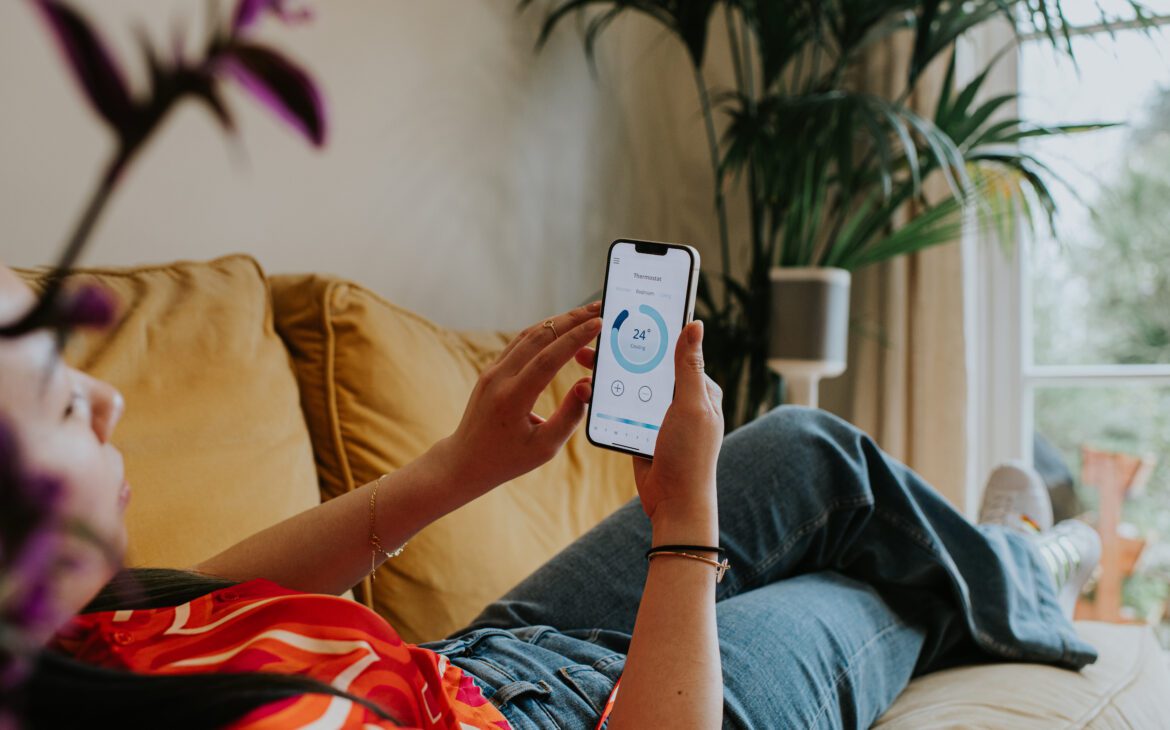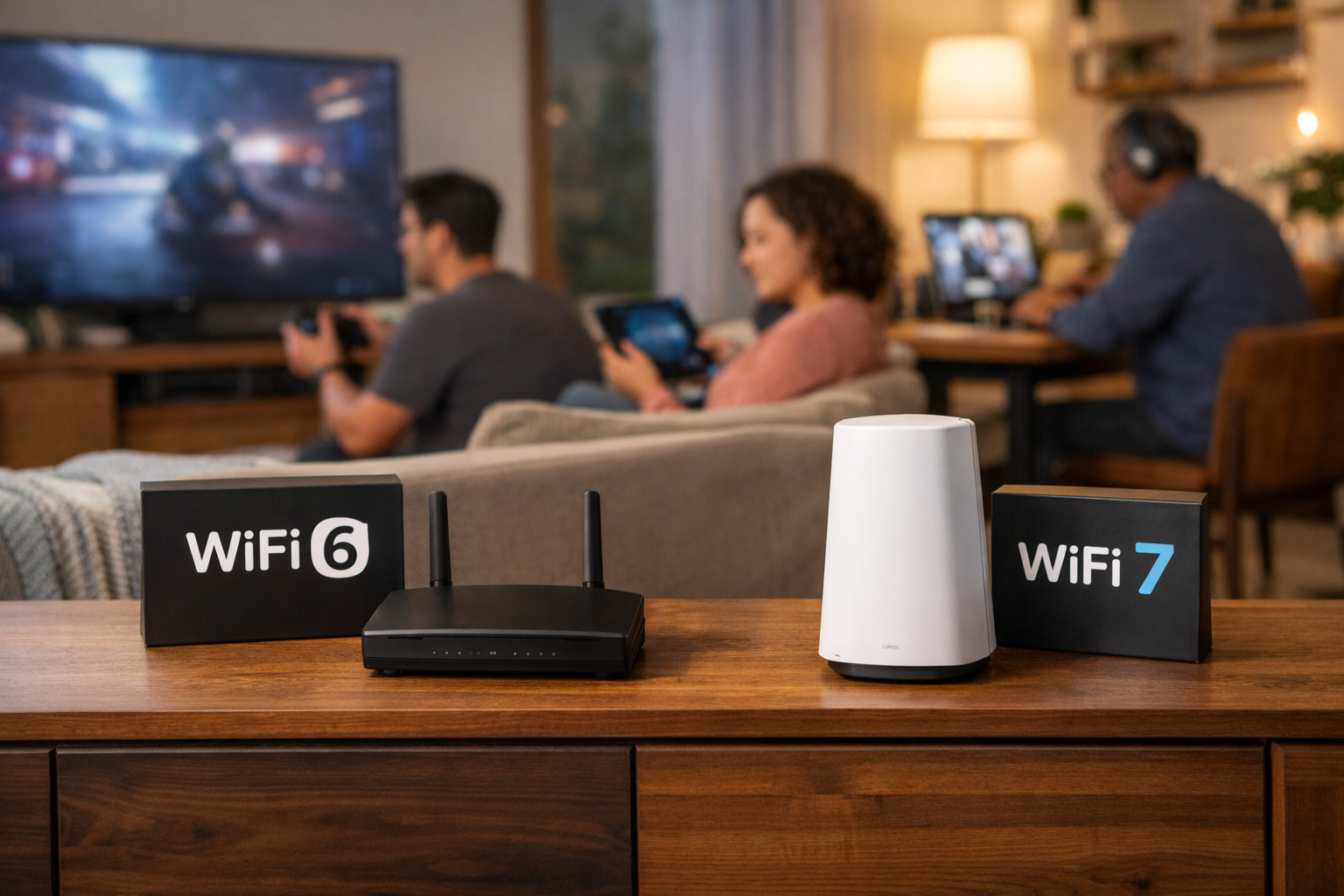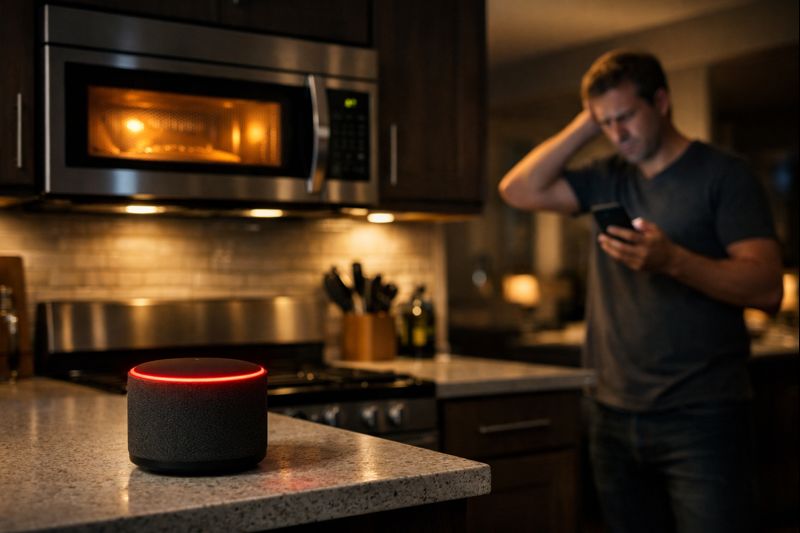Have you ever gone to a coffee shop or library and logged into their public WiFi? If so, you’ve probably used a WiFi hotspot! In fact, 53% of people have connected to the WiFi at a café or restaurant, and 50% have used the WiFi at a fast food joint. After all, why would you waste your mobile data when there’s free WiFi available? You might be wondering, “What is a WiFi hotspot?” Keep reading to find out!
What is a WiFi hotspot?
Similar to the internet connection you have at home, a hotspot transmits internet signals, and you can connect your other devices to those signals. WiFi hotspots are internet access points that allow you to connect to a WiFi network using your computer, smartphone, or other device while you’re on the go. Many cities, businesses, and other organizations offer WiFi hotspots for public use. These hotspots help people access faster internet connections than what is often available on cellular networks. Most modern smartphones can also become personal hotspots, which let other devices connect to the internet using your mobile data
For example, New York City has a public Wi-Fi hotspot location map. Locals and tourists alike can find a hotspot near them and connect with their devices to find directions to the MOMA and the Empire State Building. Now if only there was WiFi on the subway…
So, how does a WiFi hotspot work? And are they safe? Let’s learn more.

How does a WiFi hotspot work?
A public WiFi hotspot works, from the user’s end, much like the WiFi network in your home or office. The hotspot transmits an internet connection using special wireless equipment to create a WiFi network that you can connect to via a tablet, smartphone, or computer.
The range, power, speed, and price of a WiFi hotspot will vary based on where you are. But the overall idea behind a WiFi hotspot is exactly the same as a home-based WiFi network, so you can use a WiFi hotspot just like you would at home.
Types of WiFi hotspots
Though all WiFi hotspots are similar in some ways, there are a few different types available: public, mobile, and pre-paid.
Public WiFi hotspots
A public WiFi hotspot is exactly what it sounds like. Places like coffee shops, libraries, and retail stores may offer a free, public WiFi connection for customers. In some cities, municipal governments or ISPs may also provide public WiFi connections, just like the NYC hotspots we mentioned before. These are usually free to use, but in some areas, like hotels and airports, you may have to pay to access a public WiFi hotspot.
Mobile WiFi hotspots
Did you know you can use your phone as a WiFi hotspot? When you turn on this feature, your phone uses its cellular data to create a hotspot. You can then connect a computer or other device to this hotspot to access the internet. Make sure you know your mobile data plan, so you don’t accidentally rack up a huge bill by exceeding your mobile data. Bandwidth-intensive things, like video chatting and streaming, can eat up your data.
You can also buy purpose-built mobile WiFi hotspots, which are designed to turn a cellular data connection into a strong WiFi connection. People who travel a lot for work or who need constant access to a reliable WiFi connection can use one of these devices, which can be purchased from most cell phone companies.
Pre-paid hotspots
Prepaid WiFi hotspots are similar to mobile hotspots. However, they set limits on how much data you can transmit over the connection. You prepay for a set amount of data, and when you run out, you can automatically pay for more. This is a good way to get a mobile hotspot without a long-term cellular data subscription.

Are WiFi hotspots safe?
Private WiFi hotspots, such as mobile and prepaid versions, are generally safe, as long as you follow best security practices. When it comes to public hotspots, however, it’s important to stay on guard and protect your data at all times.
As a rule of thumb, we recommend that you don’t do anything over a public WiFi hotspot that could compromise secure personal data, such as providing payment information, using banking apps, or accessing medical records. For activities such as basic web browsing, checking personal email, or social media, public WiFi hotspots tend to be safe. It’s always a good idea to follow phone security tips to prevent your cell phone from being hacked.
WiFi hotspots and you
Now that you know more about WiFi hotspots, how likely are you to use one in the future? Will you still log in to the WiFi at your local coffee shop? Will you invest in a pre-paid hotspot to take with you on business trips? Let us know in the comments below.
To learn more about internet safety, explore the Quantum Fiber blog. Check out more great articles to boost your web knowledge at Quantum Fiber’s Internet Essentials!








